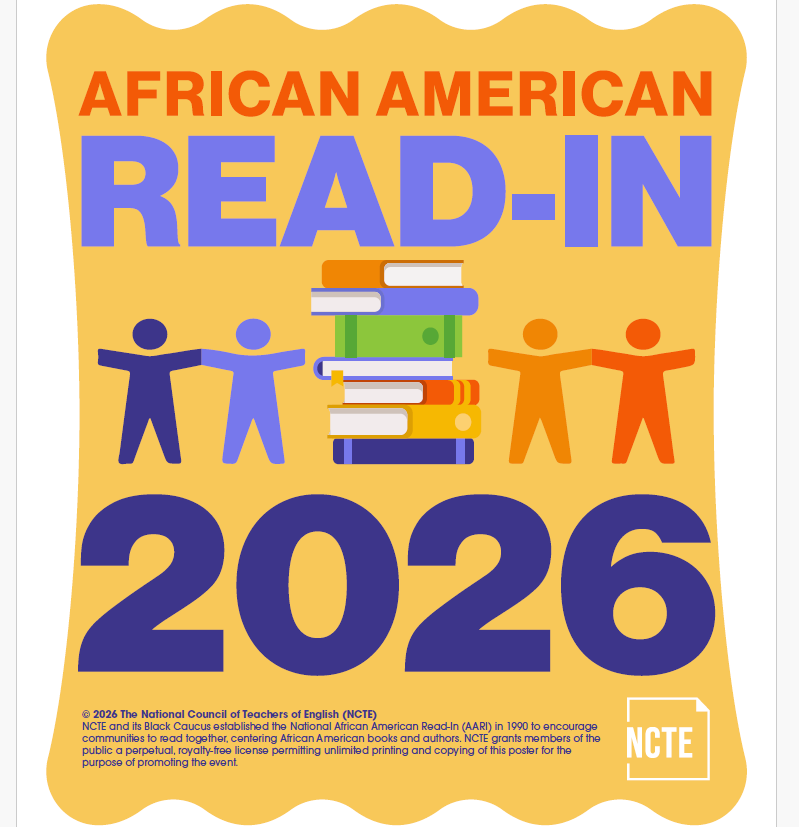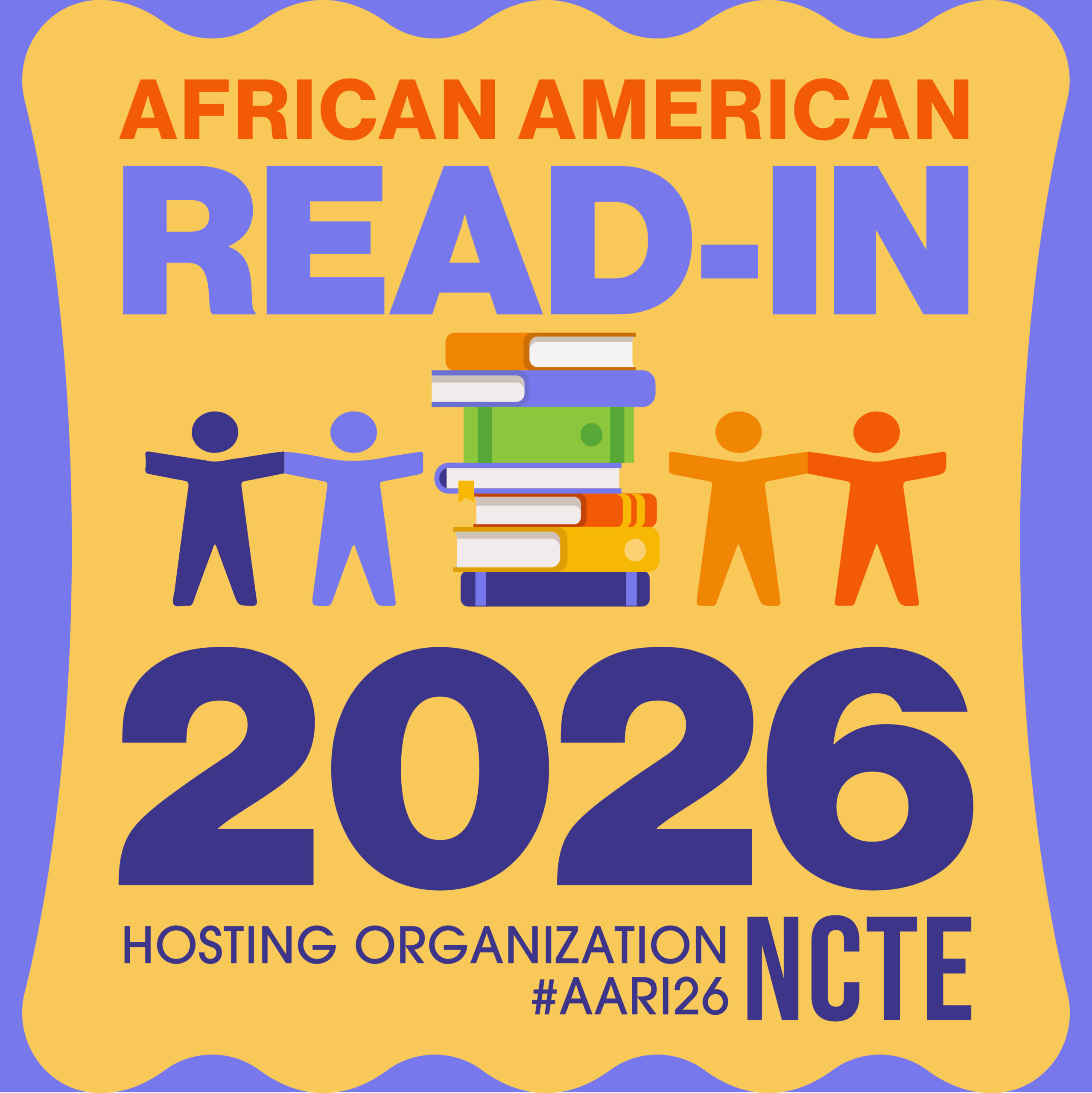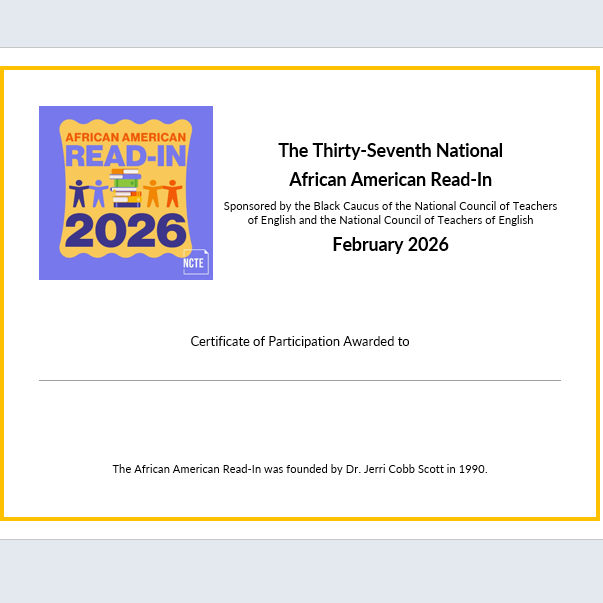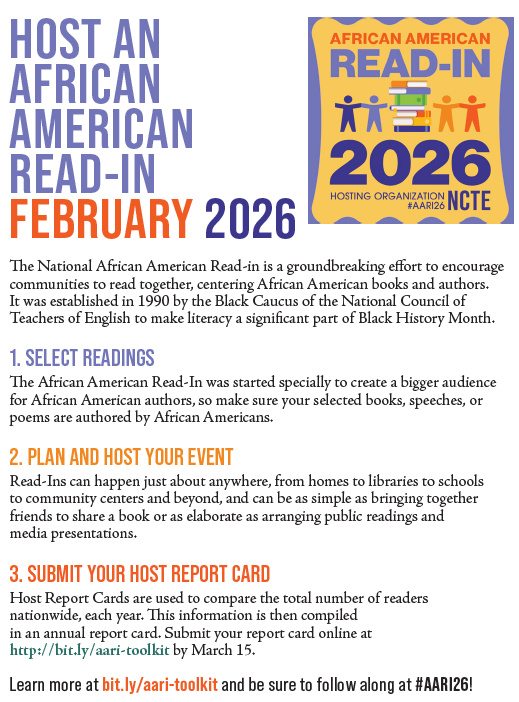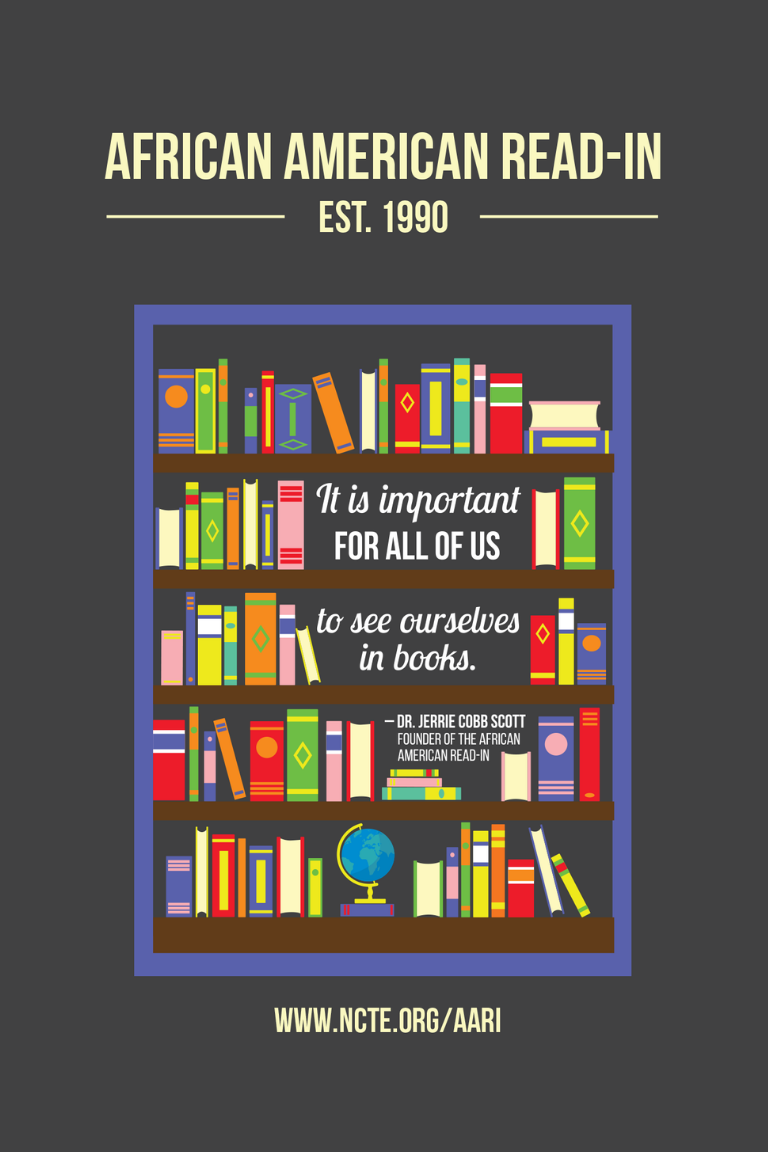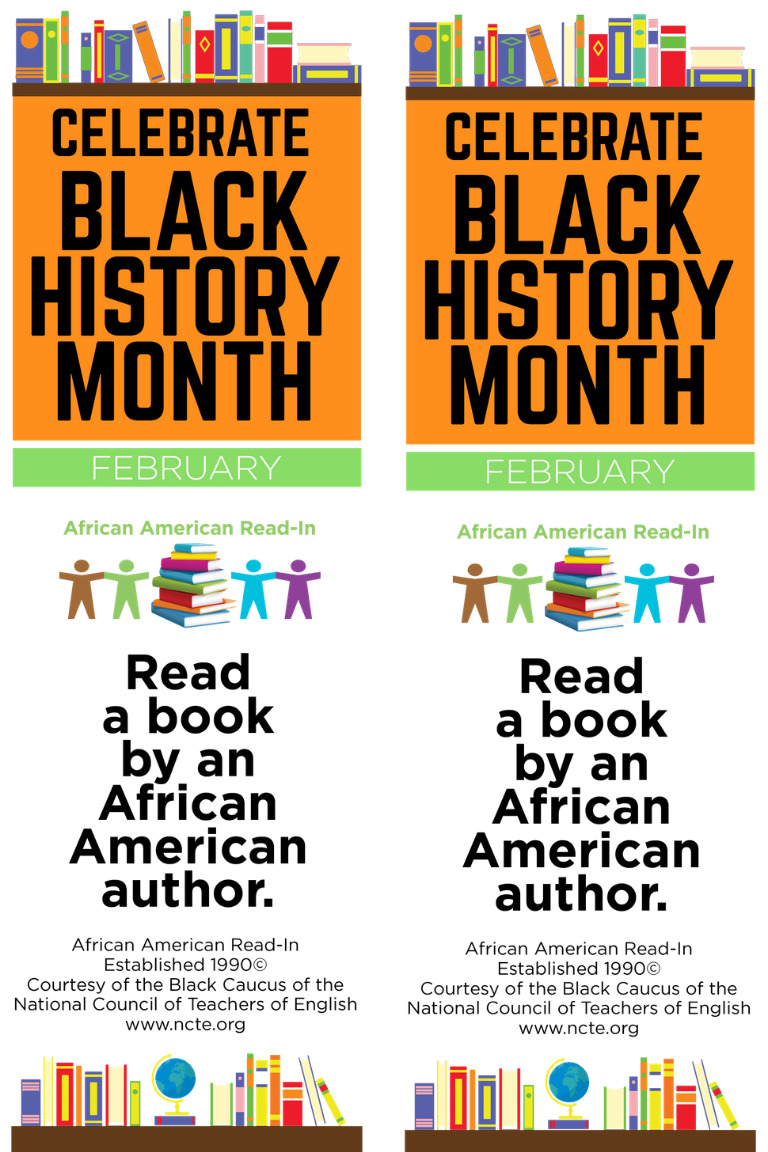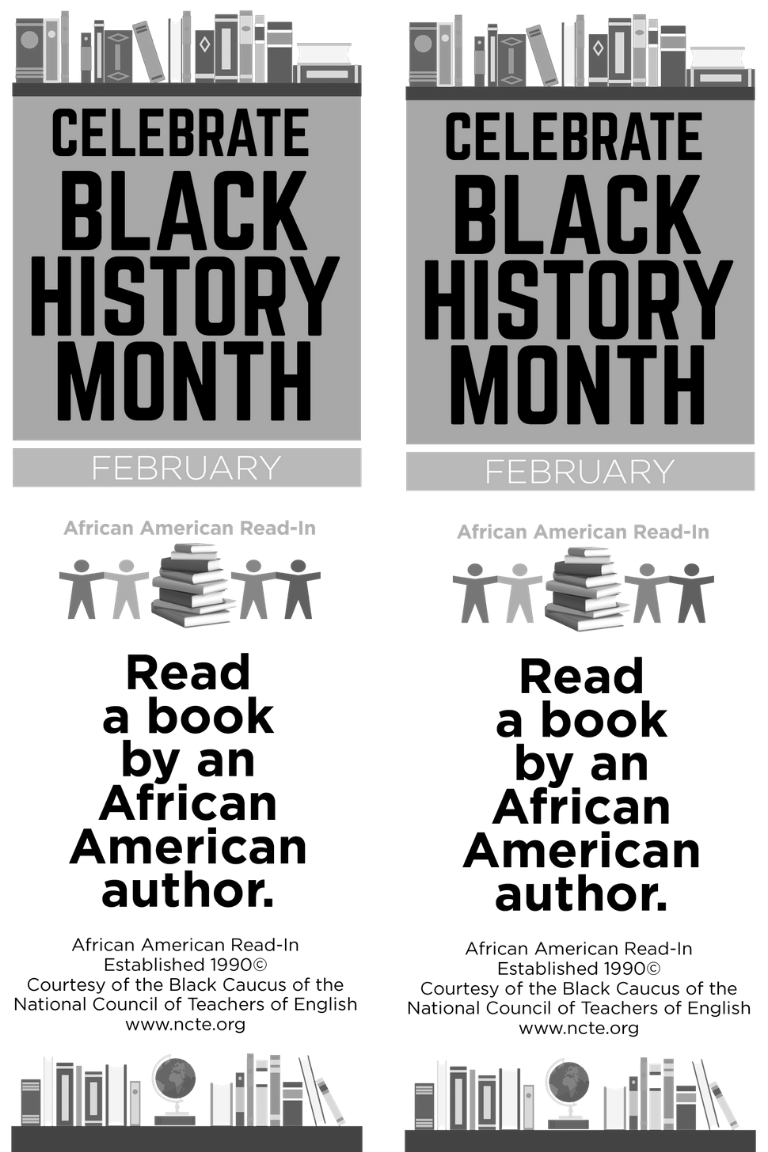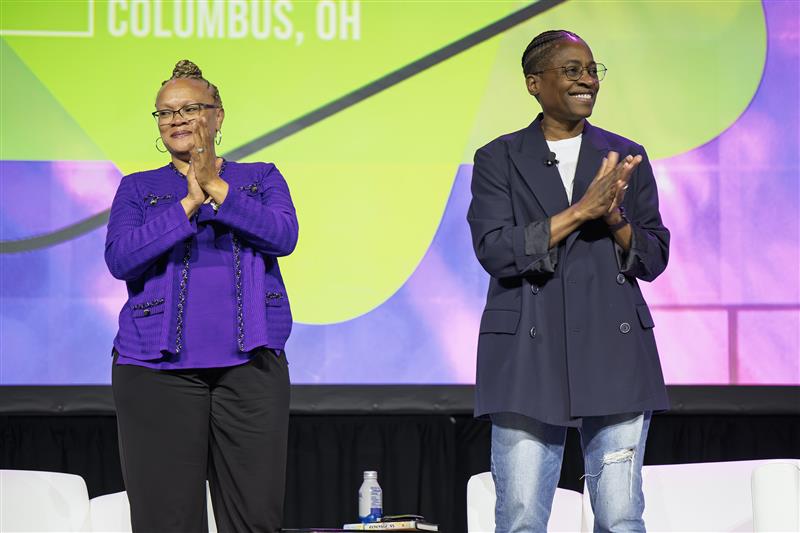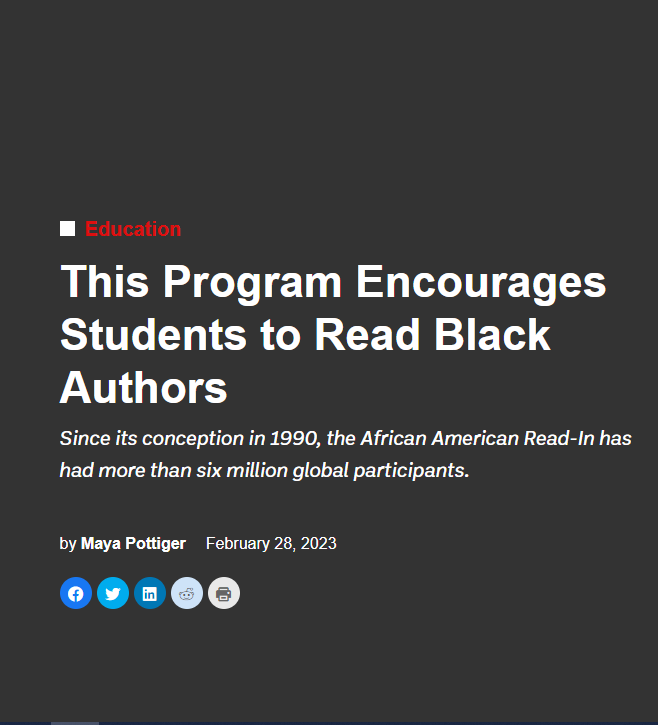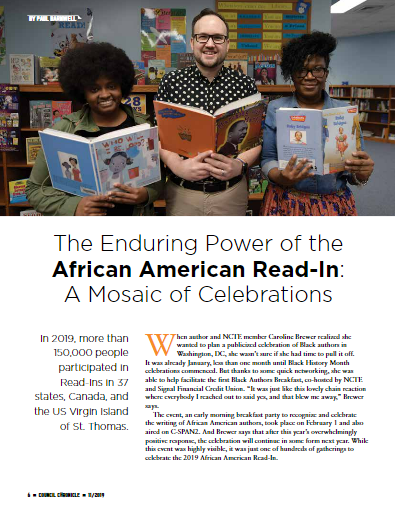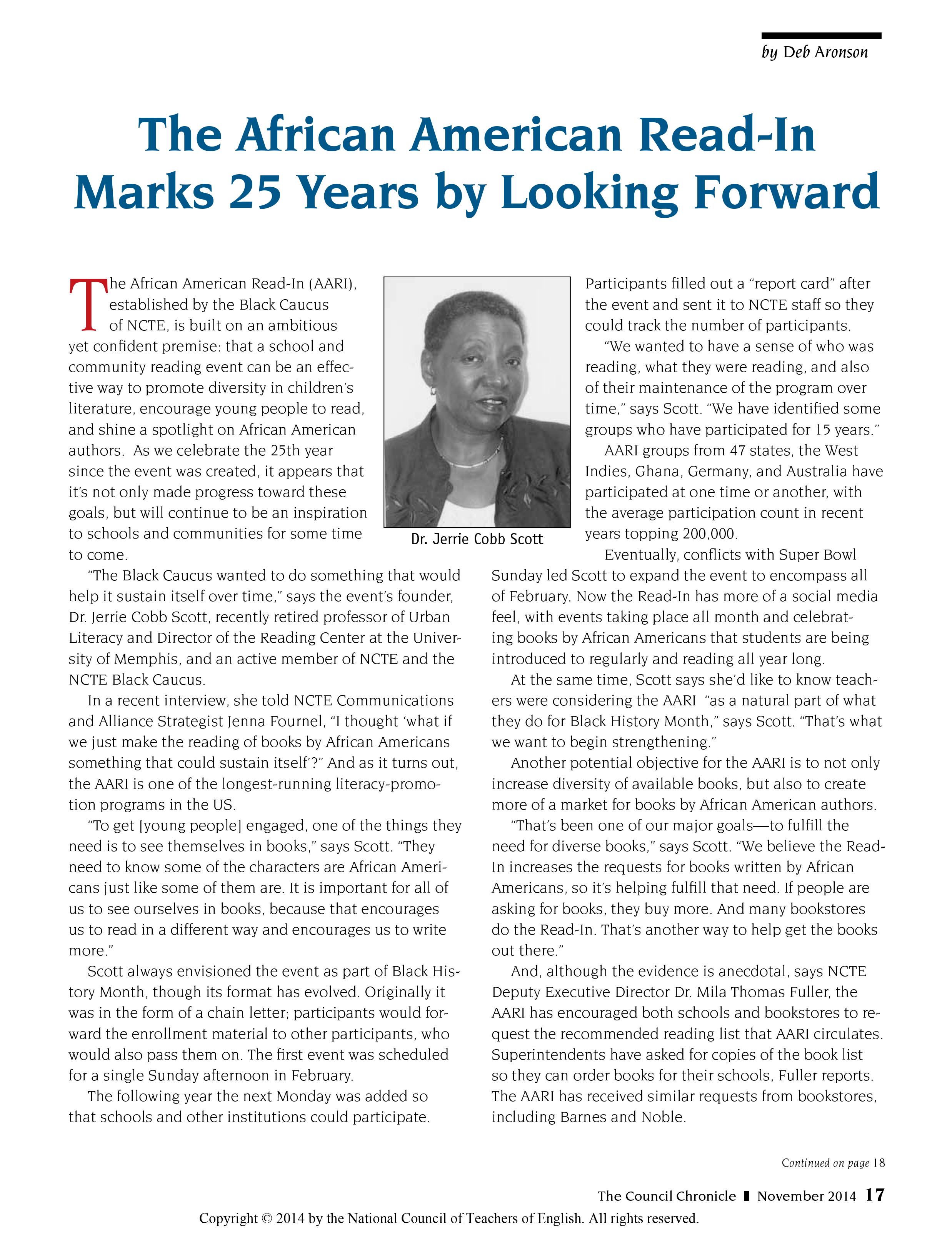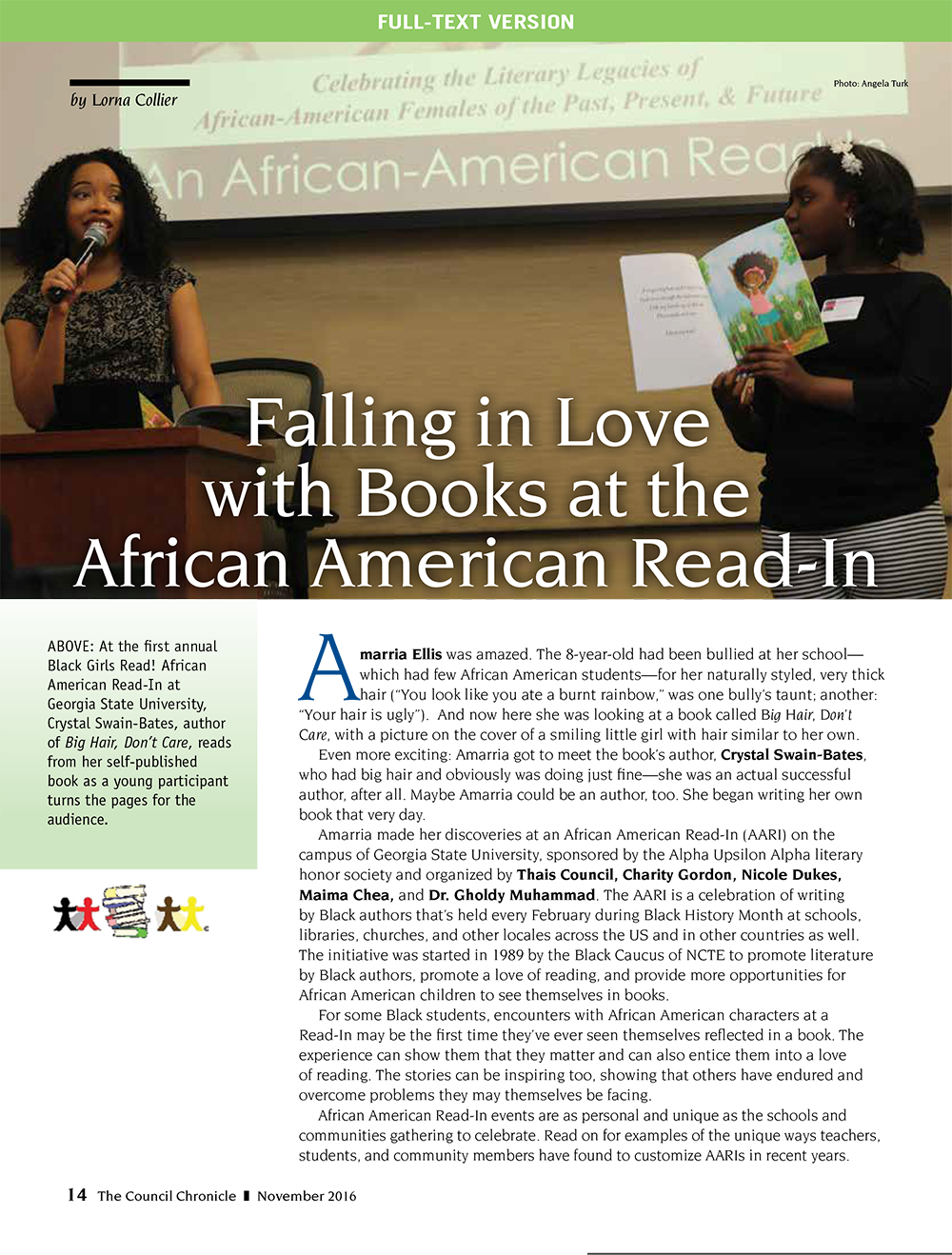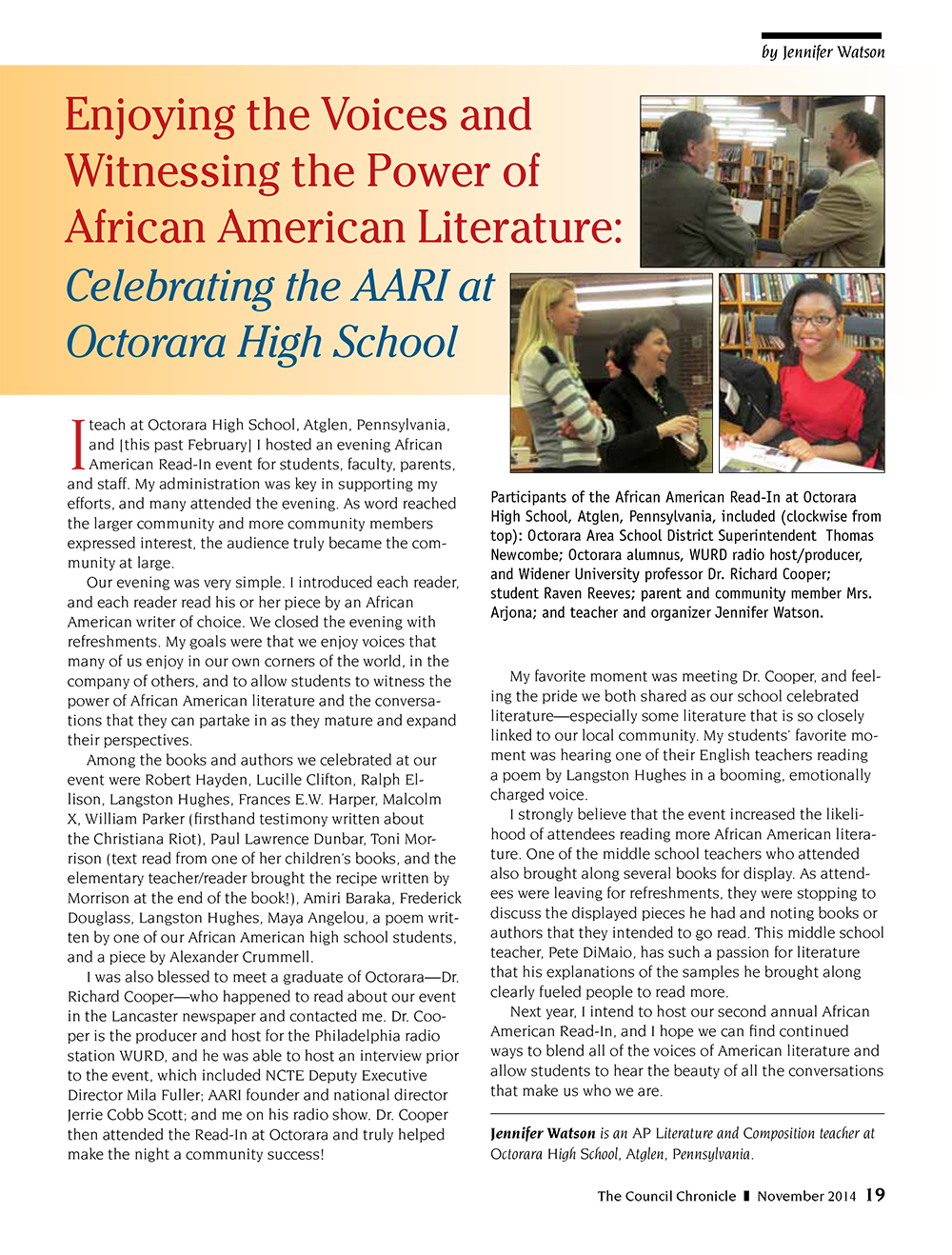Where do events take place?
Read-Ins can happen just about anywhere, from homes, to libraries, to schools, to community centers and beyond. Each year NCTE asks event-holders to fill out a “report card” giving us details on where the event took place, how many people participated, and what books were read. You can see a calendar of events from 2019–2024 here, as well as listings from previous years: 2018 events; 2017 events.
Thank you to everyone who hosted and submitted an event to be included in the 2025 Host Report Card.
Are you hosting an event for the 2026 African American Read-In? Host report forms are due March 15, 2026. Tell us about your event!
What do you do for an African American Read-In?
The format of these events varies widely, but all events have a few things in common:
- Texts written by African American authors are shared.
- Participants either listen to or provide the readings.
- A count is taken of who attends, and that count is documented in the “report card” as a measure of the global reach of this program each year.
Beyond these commonalities, events have included:
- Readings by authors
- Poetry slams
- Musical acts, performances, reenactments, or plays
- Film screenings including discussions of paired texts
- A common reading in advance of a single text, like a book club
- Writing or art-making and the sharing of that by participants
- Featured guests such as local leaders or community heroes
- Book drives to collect books by African American authors to share with schools
- Activities for young children (e.g., bedtime stories)
- Media coverage to raise the profile of local authors
- Ongoing community outreach after the event that spreads the love of literacy
- Awards of recognition for African American authors within the community
What books are good to read?
It’s a sign of the success of programs like the African American Read-In and other campaigns to support diverse authors that the answer to this question is slowly growing each year. Here are some booklists from previous years that might spark your interest, but these are by no means comprehensive.
One important note to consider: the African American Read-In was started specifically to create a bigger audience for African American authors. So in the spirit of supporting this core mission, these booklists do not include texts that feature African American characters but that are not written by African American authors.
- African American Read-In 2026 – NCTE Recommendations
- African American Read-In 2025 – NCTE Recommendations
- African American Read-In 2024 – NCTE Recommendations
- NCTE Texts and the 2024 African American Read-In
- Build Your Stack with NCTE Children’s Book Award–Winning Titles for the African American Read-In 2024
- African American Read-In 2023 – NCTE Recommendations
- African American Read-In 2022 – NCTE Recommendations
- NCTE Publications Written by African American Authors 2022
- African American Read-In 2021 – NCTE Staff Recommendations
- NCTE Children’s Book Award–Winning Titles for the African American Read-In 2019
- 2020 AARI List of Recommended Readings
- Book Recommendations for the African American Read-In
- NCTE Convention Attendees’ Favorites
- AARI Frequently Read Books
- Supplemental List for Young Adults and Adults
- Supplemental List for Young Children
- The Farrell J. Chiles Collection
History of the National African American Read-In
At its November 1989 meeting, the Black Caucus of the National Council of Teachers of English accepted the Issues Committee’s recommendation that the Black Caucus sponsor a nationwide read-in on the first Sunday of February. At the request of educators, Monday was designated for educational institutions. Dr. Jerrie Cobb Scott, an active member of NCTE and the Black Caucus, brought the idea to the committee. It was envisioned that following a decade of rigorous campaigning for participants, the African American Read-Ins would become a traditional part of Black History Month celebrations. In 1990, the National Council of Teachers of English joined in the sponsorship of the African American Read-In Chain. The commitment for nationwide promotion extends from 1990 to the present.
Dr. David E. Kirkland explains the importance of the Read-In:
Questions?
Contact us at: aari@ncte.org
“It is important for all of us to see ourselves in books.” – Dr. Jerrie Cobb Scott, founder of the African American Read-In

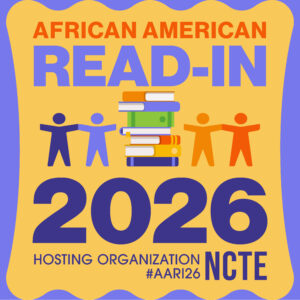 National African American Read-In Toolkit
National African American Read-In Toolkit